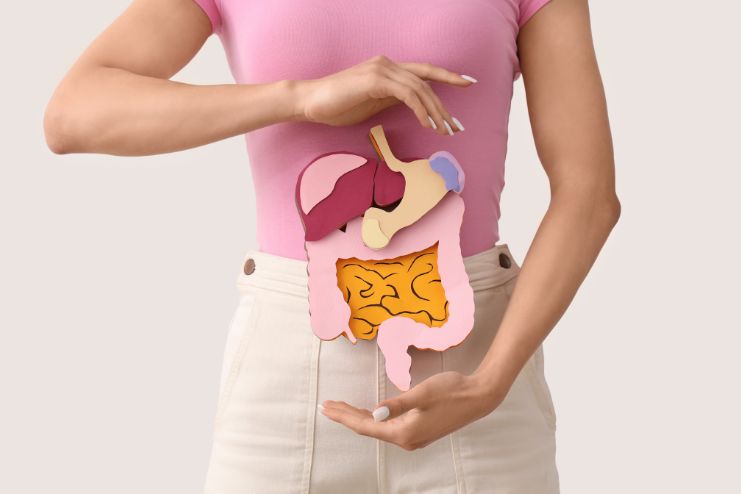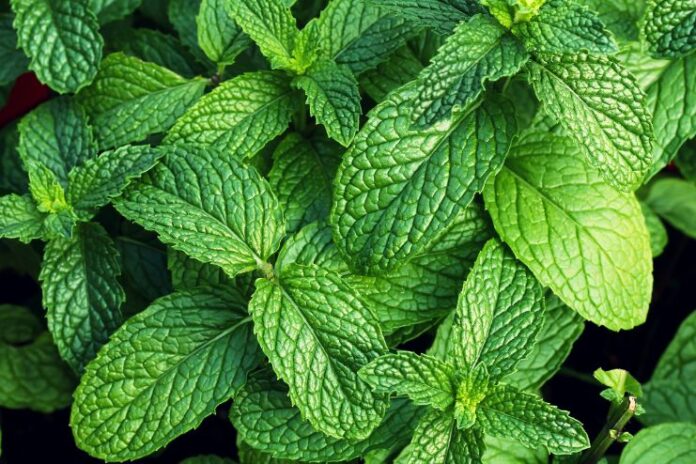Affiliate Disclaimer
Some links in this article are affiliate links. We may earn a small commission if you make a purchase through these links, at no extra cost to you. We only recommend products we find useful to our readersImagine a single herb that not only elevates the flavor of your favorite dishes but also boosts your health in ways you never expected. A refreshing and fragrant herb, mint has long been used in culinary and medicinal traditions worldwide. Its utility is limitless, from adding flavor to food and beverages to promoting relaxation and reducing stress.
Mint is more than a flavor enhancer because it contains vital minerals, antioxidants, and healthy plant chemicals. Its vivid green leaves enhance savory and sweet dishes with a blast of freshness while also promoting general health.
In ancient cultures, mint was valued for its medicinal qualities and was frequently used to treat respiratory and digestive problems. It still has several health advantages today, from better digestion to increased mental clarity. Adding mint to your daily diet can be an easy and efficient approach to promote your health naturally.
This article discusses seven unexpected benefits of using mint in your diet and why this common herb should be a fixture in your kitchen.
Read More: Peppermint As A Potent Treatment For Oesophageal Disorders, Study Suggests
7 Benefits of Adding Mint to Your Diet
1. Freshens Breath
Worried about bad breath? Breath mints can help! The science behind using gum or candy as breath fresheners is straightforward. Chewing or sucking produces extra saliva, which helps rid your mouth and teeth of bacteria that could cause an odor. Additionally, the minty aroma temporarily covers the odor while the saliva gets to work.
Mint is one of the best natural cures for foul breath. Its naturally occurring aromatic compounds—menthol in particular—offer an incredible, revitalizing rush that rapidly eliminates smells.
In addition to its fresh taste, mint has strong antimicrobial qualities. These qualities aid in the fight against dangerous oral microorganisms by lowering plaque accumulation and preventing cavities and gum disease.
You can freshen your breath with mint in many ways. You can chew on fresh mint leaves for an instant breath boost or enjoy a soothing cup of mint tea. For a more convenient option, try popping a mint leaf under your tongue and letting it sit for a few minutes—this allows the oils to work their magic. Alternatively, if you’re on the go, mint-flavored gum or breath mints are an easy way to keep your breath fresh throughout the day.
2. Supports Digestive Health

Indigestion may result when food remains in the stomach for an extended period before moving on to the other parts of the digestive system.
Numerous studies have shown that taking peppermint oil with meals speeds up the passage of food through the stomach, which may help alleviate the symptoms of this kind of indigestion.
Irritable bowel syndrome (IBS) is widespread, and digestion-related symptoms like gas, bloating, stomach pain, and altered bowel habits are its hallmarks.
Research indicates that peppermint oil as a herbal therapy may be beneficial, even if dietary modifications and medication are common treatments for IBS. Menthol, a substance found in peppermint oil, is believed to have a calming impact on the muscles of the digestive tract, hence reducing the symptoms of IBS.
Shop Here: Peppermint Oil
Read More: DIY Herbal Teas: 7 Home Remedies to Soothe Common Ailments
3. Relieves Nausea
Peppermint (Mentha piperita) has long earned praise as a natural cure for nausea and upset stomachs due to its calming qualities and invigorating scent. Peppermint is a well-liked natural medication that can help with indigestion, motion nausea when traveling, morning sickness during pregnancy, and the side effects of chemotherapy.
Menthone and menthol, two of peppermint’s active ingredients, contribute to its antinausea effects. In addition to giving the herb its unique flavor and perfume, these organic compounds also help relieve nausea and digestive distress caused by several essential circumstances.
One of the main ways peppermint relieves nausea is by relaxing gastrointestinal (GI) tract muscles. As nausea sets in, the muscles in the stomach and intestines tense and spasm, causing discomfort and anxiety. These substances lessen nausea by relaxing the muscles involved in digestion.
Anxiety and stress can exacerbate nausea, making relief difficult. Peppermint’s invigorating aroma has a relaxing impact on the neurological system, which helps to reduce nausea and encourage relaxation.
4. Boosts Immunity
Mint’s natural ingredients reduce infection by warding off dangerous microorganisms. One of the main ingredients in mint, menthol, has been demonstrated to have antibacterial properties that can stop the growth of several bacteria and viruses.
As a natural decongestant, peppermint’s intense menthol concentration helps to cleanse nasal passages and ease sore throats. Additionally, peppermint contains antibacterial qualities that help prevent infections. It is a popular treatment during cold and flu season because of its anti-inflammatory properties, which can reduce sinus pressure and headache symptoms.
To optimize its immune-boosting effects, consider combining mint with other potent plants and foods. Ginger, garlic, turmeric, and lemon complement mint’s preventive qualities. Try making a mint and ginger tea with a squeeze of lemon to add more vitamin C and make a fabulous immune tonic.
Mint, known for its refreshing flavor and health benefits, is an easy and enjoyable addition to your wellness routine. When added to teas, salads, smoothies, or flavored water, it can offer consistent immune support.
Read More: 12 Self-Care Products to Pamper Yourself at Home
5. Improves Skin Health

Mint is widely used in various cosmetics, including face cleansers, shampoos, and conditioners. These fragrant, vibrant green leaves contain excellent nutrients that help keep skin and hair healthy. Mint has various therapeutic qualities and can be used as a natural treatment for sunburn, acne, and many other conditions.
Mint’s potent antibacterial and anti-inflammatory qualities make it a perfect treatment for acne and acne scars. People claim that it thoroughly cleanses the skin and clears clogged pores, both of which cause acne. Salicylic acid and vitamin A, two fantastic skincare elements that help regulate the skin’s sebum production and avoid stress outbreaks, are also found in mint leaves.
Mint is a good natural skin toner since it is moderately astringent. It eliminates dead cells and restores your skin’s suppleness, smoothness, and moisture content. Additionally, it tightens your pores, which helps your skin retain moisture.
The antioxidants in mint leaves enhance blood flow and shield our skin from the damage caused by free radicals. In exchange, they delay the onset of wrinkles and fine lines.
Read More: 10 Best Essential Oil Blends for Detoxification and Wellness
6. Enhances Mental Clarity
Studies have shown that mint’s energizing scent promotes cognitive function and mental clarity. Beyond just freshening breath, mint leaves have demonstrated outstanding potential in improving cognitive and brain function, especially when added to peppermint tea or made into peppermint oil.
According to studies published in the International Journal of Neuroscience, there is a beneficial impact on blood pressure regulation, long-term memory problems, and even the relief of tension headaches and mental exhaustion.
Use peppermint to see notable improvements in cognitive decline, brain function, and general mental performance, particularly in elderly persons. Scientific studies support the benefits of peppermint and its scent, from improving memory to reducing Alzheimer’s symptoms, including research on how its active component affects the brain’s hippocampal region.
7. Supports Weight Management

Are you trying to find a natural technique to help you lose weight? Mint has gained popularity as a weight loss aid for good reason. According to research, mint’s calming flavor and aroma may assist your metabolism and reduce cravings.
A 2023 study found that mint can increase fat oxidation by up to 25%, making it an effective supplement for any weight loss regimen.
Mint leaves naturally inhibit appetite, which helps reduce hunger. Their scent reduces overeating by stimulating the satiety centers of the brain. Consuming peppermint every two hours results in a 23% reduction in caloric intake.
Adding mint makes water taste better, promoting better hydration. Hydration is essential for weight reduction because 500ml of water can increase metabolism by 30%.
The robust, cooling flavor of mint helps quell sugar cravings and lessens the need for processed sweets. Additionally, by satiating taste receptors, peppermint has been shown to reduce cravings for items rich in calories.
It’s crucial to remember that mint isn’t a miracle weight-reduction aid. Implementing a nutritious food plan as part of a more comprehensive strategy for better living may have beneficial effects.
Read More: Home Remedies Handbook: DIY Healing for Everyday Family Ailments
Conclusion
Incorporating mint into your daily diet offers a surprising range of health benefits. This versatile herb is a true wellness powerhouse, supporting everything from digestion and fresh breath to boosting immunity and promoting healthy skin. Its calming aroma can also help clear your mind, while its digestive benefits make it a great ally in weight management.
Adding mint to your meals and snacks is both simple and delicious. Try infusing your water with fresh mint leaves for a refreshing twist, or add them to salads, drinks, and smoothies for a burst of flavor. For added skin care and mental clarity, explore mint-infused cosmetic products or aromatherapy options.
By making mint a regular part of your routine, you’ll not only enjoy its fresh, invigorating taste but also experience its many health advantages. Embrace mint’s cooling, revitalizing effects and discover how this humble herb can enhance your overall well-being.
References
- https://www.galvezdentalstockton.com/how-to-get-rid-of-bad-breath-remedy
- https://www.colgate.com/en-in/oral-health/bad-breath/will-breath-mints-solve-a-bad-breath-problem
- https://pubmed.ncbi.nlm.nih.gov/36994979/
- https://www.healthline.com/nutrition/mint-benefits#TOC_TITLE_HDR_3
- https://www.medicalnewstoday.com/articles/275944
- https://draxe.com/nutrition/mint-leaves/
- https://www.onlymyhealth.com/health-benefits-of-mint-for-muscle-pain-and-digestion-1702549855
- https://www.verywellhealth.com/does-peppermint-help-with-nausea-7567195
- https://www.mountsinai.org/health-library/herb/peppermint
- https://www.prevention.com/food-nutrition/a63084407/is-peppermint-tea-healthy/
- https://www.lifebuoy.co.za/health/infection-and-prevention/health-and-lifestyles/the-health-benefits-of-mint-for-skin.html
- https://www.netmeds.com/health-library/post/mint-leaves-have-soothing-benefits-for-irritated-skin
- https://bodyacheescape.com/mint-leaves/
- https://pubmed.ncbi.nlm.nih.gov/35408451/
- https://www.scirp.org/journal/paperinformation?paperid=93142
- https://www.lifeextension.com/wellness/herbs-spices/does-mint-help-you-focus
- https://fitelo.co/weight-loss/mint-for-weight-loss/
In this Article



















